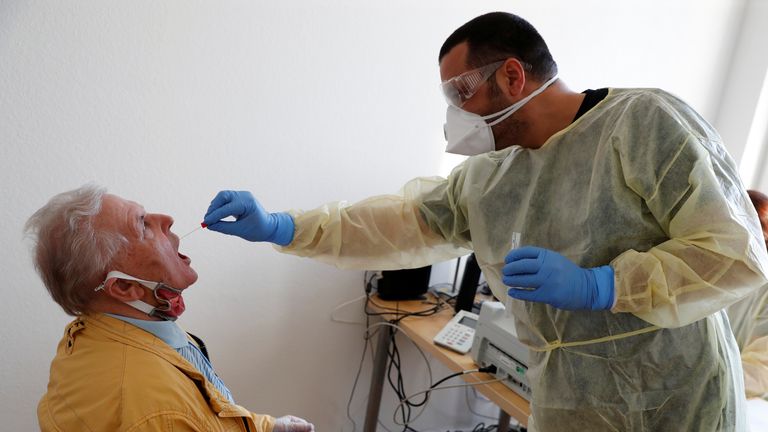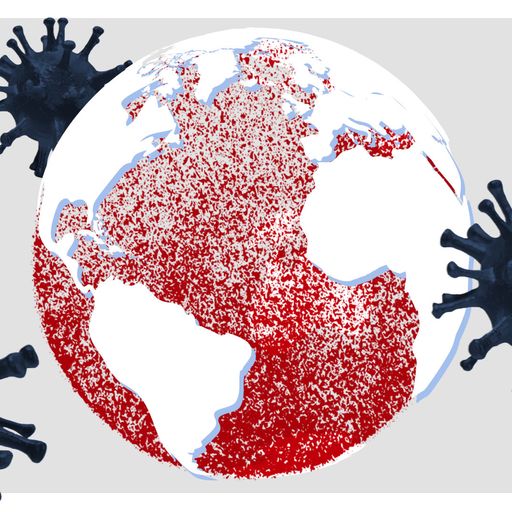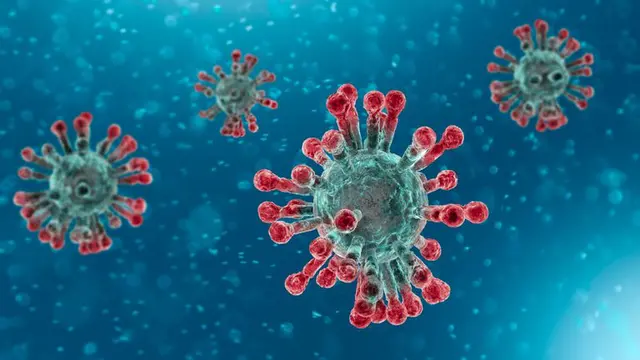Researchers say they have developed a coronavirus test that can take 45 minutes to show whether someone is infected.
The "rapid and easy-to-implement" test was made by a team scientists at the University of California, using clinical samples from 36 patients with confirmed
COVID-19
- the disease caused by **coronavirus
** .
Their research, which has been detailed in the scientific journal Nature Biotechnology, also used samples from 42 patients with other viral respiratory infections.
The team says the end result is a reliable test that can provide results in around 45 minutes, shown on a visual readout strip similar to those of a home pregnancy test.

Image:The test requires patients to have swabs put down their throat
Results are provided faster than existing antigen tests approved by the World Health Organisation (WHO) and the US Centers for Disease Control and Prevention (CDC).
Screening and diagnosing patients with suspected COVID-19 tends to take several hours, while some have waited an entire day or more for results.
In a bid to make testing for the disease quicker and more efficient, the US Food and Drug Administration permitted individual clinically licensed laboratories to report results of their own in-house testing.
The test developed in California is a CRISPR-Cas12-based test, and - like existing methods - patients are required to have swabs collect samples from deep in the back of their throat and nose.
The name of the test refers to genome-editing technology called CRISPR, and a type of protein called Cas, which are used by bacteria in the body to destroy viral DNA.
Once the samples on the swabs are placed in a test tube and amplified with a liquid solution, CRISPR uses Cas-12 proteins and bits of viral genetic material designed to help guide it towards signs of COVID-19.

Image:The World Health Organisation says countries must test to combat the disease

Coronavirus: The infection numbers in real time
While the CDC test looks for the so-called coronavirus N gene and the WHO test goes after the coronavirus E gene, both can be hunted down by CRISPR.
Much like how it is typically used to edit genomes, CRISPR then gets to work cutting the coronavirus genes to try to prompt a reaction that displays whether COVID-19 is present.
The California team say the test has proved to be 95% accurate, although it requires higher concentrations of the disease to detect its presence than tests developed by the CDC and the WHO.
It makes the CRISPR test more likely to miss people with lower levels of the virus - most likely those right at the beginning or the end of their infection.
The test will also not show whether someone has already had the virus - those antibody tests are a priority for the UK government but have so far not proved reliable enough to be used.
 简体中文
简体中文

